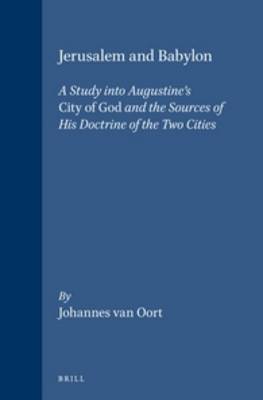Vigiliae Christianae, Supplements
1 primary work
Book 14
Although many studies have been devoted to Augustine's City of God and its most important theme, viz. the antithesis between the civitas Dei and the terrena civitas,until now no consensus has been reached concerning the sources of this doctrine. Was Augustine decisively influenced by Manichaeism, by (Neo)Platonism, the Stoa or Philo, by the Donatist Tyconius? Or should we look in another direction and refer to preceding Christian, Jewish, and especially to archaic Jewish-Christian traditions?
This lucidly written books opens with a survey of the research carried out so far on the aim, structure and central theme of the City of God. Chapter 2 analyzes the essentials of Augustine's life, of his City of God, and of his doctrine of the two cities. Making use of one of the recently discovered letters of Augustine in Chapter 3 the author describes the City of God as an apology and as a catechetical work. Chapter 4 provides an investigation into the possible sources of Augustine's doctrine of the two cities in Manichaeism, in (Neo)Platonism, the Stoa and Philo, and in the works of Tyconius.
The idea of two antithetical cities proves to be present most clearly in writings in which, closely related to Jewish thinking, archaic Christian concepts occupy an important place. In a final chapter some pertinent remarks are made on Jewish and Jewish-Christian influences on pre-Augustinian Christianity in Africa.
This lucidly written books opens with a survey of the research carried out so far on the aim, structure and central theme of the City of God. Chapter 2 analyzes the essentials of Augustine's life, of his City of God, and of his doctrine of the two cities. Making use of one of the recently discovered letters of Augustine in Chapter 3 the author describes the City of God as an apology and as a catechetical work. Chapter 4 provides an investigation into the possible sources of Augustine's doctrine of the two cities in Manichaeism, in (Neo)Platonism, the Stoa and Philo, and in the works of Tyconius.
The idea of two antithetical cities proves to be present most clearly in writings in which, closely related to Jewish thinking, archaic Christian concepts occupy an important place. In a final chapter some pertinent remarks are made on Jewish and Jewish-Christian influences on pre-Augustinian Christianity in Africa.
